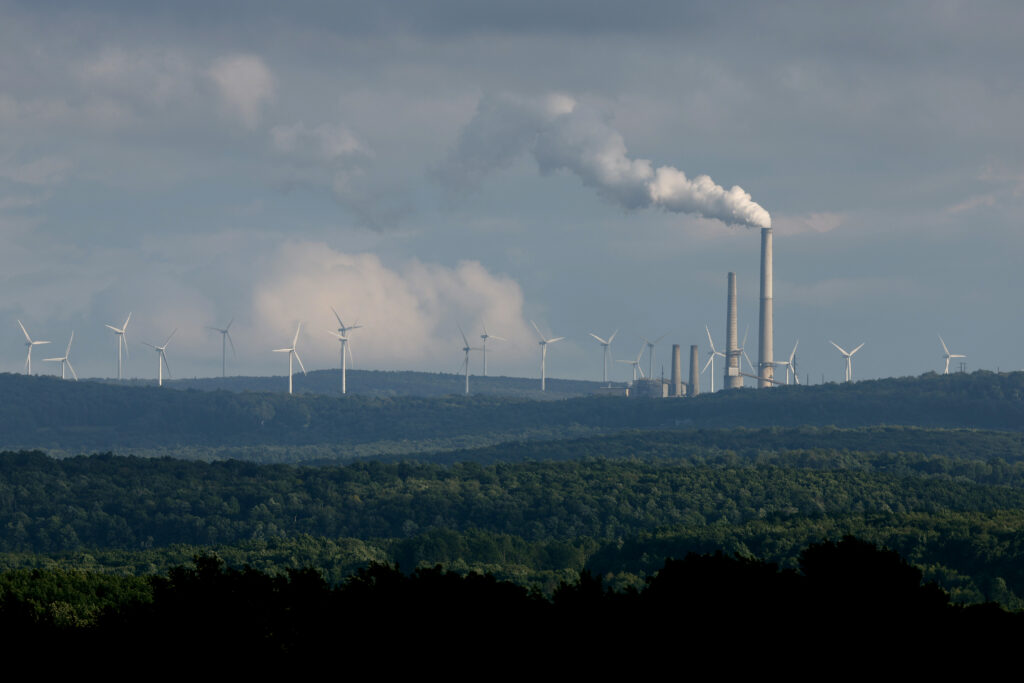Dominion Energy is among several utilities granted exemptions from enhanced federal coal pollution controls under a Trump administration order criticized by environmental groups as “farcical.”
President Trump, on April 8, issued executive orders supporting the coal industry, providing 47 companies and numerous plants a two-year exemption from rules targeting mercury and particulate matter emissions. These stricter controls, approved by the Biden administration, were to be enforced by July 8, 2027. The number of applications for exemption remains unclear.
On Monday, the U.S. Environmental Protection Agency released a list, “Annex 1,” of exempted companies. Utilities could request exemptions via email, with support letters like the one from Virginia’s PJM Interconnection for Dominion.
Dominion obtained an exemption for its Mount Storm plant in West Virginia. In a regulatory hearing, Dominion confirmed no coal plants, including Virginia’s Clover Power Station, would retire before 2045.
According to Deborah Murray, a senior attorney at the Southern Environmental Law Center, Trump’s order undermined fundamental protections, failing to meet “presidential exemption” criteria. Exemptions apply only if pollution control tech is unavailable or affects national security, she stated.
John Walke, a senior attorney at the Natural Resources Defense Council, labeled the order a “violation of the Clean Air Act,” noting existing technology could meet the rules. An EPA spokesperson defended the exemptions, claiming they support coal-fired electricity generation and bolster energy security.
Mercury and Air Toxic Standard
The Mercury and Air Toxic Standard (MATS) rules, established in 2012, limit emissions of mercury and particulate matter. The Biden administration revised these rules, requiring coal plants to adopt new technologies within three years. The updated standards lower permissible levels of PM 2.5 and mercury emissions.
By 2028, MATS is projected to reduce PM 2.5 emissions by 770 tons annually, offering $300 million in health benefits over a decade. The rules aim to cut mercury emissions, affecting aquatic ecosystems and human health.
Virginia is part of a legal challenge led by North Dakota and West Virginia in the D.C. Circuit Court, anticipating possible EPA rule rescindment. Trump’s order delays coal plant compliance until July 8, 2029, with potential extensions.
Under the Clean Air Act, the president can exempt utilities if technology is unavailable or poses national security risks. Trump’s claim of non-viability doesn’t align with the statute, says Murray. Improved pollution control technologies are attainable and operational.
Coal advocates argue that plant retirements hinder meeting energy demands from digital growth and electrification. However, Murray insists the rules only mandate emissions-reducing technology, not closures.
Walke highlights that many plants already meet standards. When the Biden EPA finalized its rule, 93 percent of coal plants were compliant. Only 38 units required upgrades to meet PM 2.5 standards, with 13 needing new filters.
Some facilities requiring upgrades are not on Annex 1. Lignite plants with technology in place and those under federal decrees to close by 2028 are included. Walke questions the executive order’s ability to override legally binding agreements.
What Is Dominion’s Deal?
Trump’s order exempts Dominion’s Mount Storm facility, active since 1965 with coal-fired units and a turbine. Dominion also owns the Virginia City Hybrid Energy Center and Clover Power Station, supplying Virginia’s cooperatives. These stations didn’t receive exemptions.
Mount Storm, according to the EPA, needs to optimize existing technology for compliance, which wouldn’t require major upgrades. Dominion seeks to increase its profit margin in its latest rate review from 9.7 to 10.4 percent.
William Shobe, a University of Virginia professor, suggests delaying compliance could reduce coal electricity generation costs. However, coal remains environmentally damaging, lacking a proper benefit-cost analysis on climate impacts.
Dominion spokesperson Aaron Ruby didn’t comment on the exemption’s impact on long-term planning. During a hearing on Dominion’s Integrated Resource Plan, the utility estimated $1.5 billion in compliance costs for Mount Storm, while federal rules require coal-to-gas conversion by 2030.
Dominion hasn’t decided on compliance strategies. Its current plan doesn’t foresee plant retirements before 2045, despite previous indications of potential closures for the Clover plant.
Original Story at insideclimatenews.org
